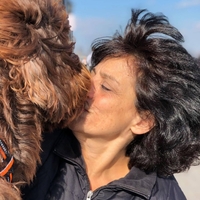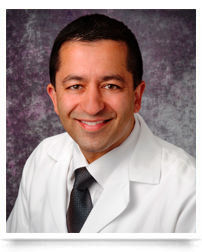About Me (In My Own Words)
**Backstory**
At 16 or 17, I was treated for Hodgkin's Lymphoma, which included chemotherapy and field radiation. I was told that radiation could potentially cause health problems later in life. Fast forward 30 years, and I was diagnosed with severe aortic valve stenosis. After doing some research, I learned that aortic valve stenosis is a known long-term side effect of field radiation, especially at high doses. When it occurs as a result of radiation therapy, it typically develops 20 to 30 years later.
**What Happened**
A year or two before my first cardiologist appointment, my primary care physician asked me to have a heart murmur checked out. At the time, I didn’t think it was a big deal and didn’t really consider my medical history in relation to it. I put it off, thinking it was nothing to worry about. Eventually, I decided to go, mostly to prove a point to my mother that we should listen to our doctors’ recommendations (ha!). Little did I know, that simple visit would set off a chain of events that would ultimately lead to a life-changing diagnosis.
The first cardiologist I saw conducted an echocardiogram and recommended simply monitoring the condition. However, six months later, I sought a second opinion from Dr. Raza at Baylor in McKinney, TX. After performing another echocardiogram and a stress test, he suggested regular follow-up visits for asymptomatic moderate to severe aortic stenosis.
Dr. Raza then referred me to the Valve Clinic at Baylor Heart in Plano, TX, for further testing. After more tests, Dr. Schaffer and his team identified my symptoms, with extreme fatigue and dizziness being the most noticeable. Based on these findings, Dr. Schaffer recommended a valve replacement. Although I was a candidate for the TAVR procedure, my small heart size would have caused the TAVR valve to further narrow the aortic valve opening. Instead, Dr. Schaffer recommended enlarging the valve opening through a Freestyle root or an aortic root enlargement with either a biological or mechanical valve. I chose a biological valve to avoid taking blood thinners for life. By opting for the root enlargement now, I can undergo the TAVR procedure in 10 to 15 years, as the valve will be large enough. I had a choice: undergo the more invasive surgery now, while I’m younger and able to heal better, or wait until the TAVR valve needs replacement when I’m 10 to 15 years older. The choice was clear—I decided to do the harder thing now to set myself up for success later. I chose the Freestyle root.
Before proceeding with the surgery, I thoroughly researched Dr. Schaffer’s background, and his credentials were impressive—great education, long-term employment, and vast experience. But I didn’t stop there. I essentially interviewed him, asking numerous questions about the surgery, his experience, and his qualifications. He was incredibly patient and kind, answering every question, no matter how intrusive. In my past experiences with surgeons, I hadn’t always found them personable, so I was especially impressed with Dr. Schaffer’s willingness to engage and provide detailed responses.
A month later, after additional tests and appointments, I underwent surgery at Baylor Heart Plano. The procedure went smoothly, and I stayed in the hospital for five days before being discharged. My only real complaint, aside from the typical post-surgery discomfort, was the pain management during my hospital stay. While I understand the challenges of pain management due to the opioid crisis, the combination of Tylenol, gabapentin, and muscle relaxers didn’t work for me. Tylenol, in particular, made me vomit, and after a sternotomy, vomiting was extremely painful.
Eventually I refused the Tylenol and requested an alternative pain management solution, which made me uncomfortable. The hospital staff accommodated my request, but since Tylenol was still listed in my orders, I had to ask for the alternative each time, which was awkward, even though the substitute was also non-narcotic. It’s also worth mentioning that I had a sternotomy when I was 17, so in addition to the usual post-op tubes, I had pleural drainage tubes, which are notoriously painful. Once those were removed, my pain level dropped significantly—from a 9 to about a 4 or 5. I wonder if the doctor issued standard pain orders for this procedure and didn’t account for the additional pleural tubes, or if they were aiming to keep me in a certain level of pain to limit movement. Either way, because I never mentioned this to Dr. Schaffer during his rounds, he didn’t have the chance to adjust anything or explain his reasoning.
**Outcome**
Now, two months after the surgery, I feel fantastic! I went back to work after six weeks and stopped taking pain medication, including Tylenol, just a few days after returning home. Aside from some occasional discomfort, I feel great. I have more energy than I did before the surgery, and I no longer fall asleep every time I sit in a comfortable chair.
I’ve been doing ROM therapy (at-home cardiac rehab) three times a week, and it’s been amazing! It’s incredibly convenient, and I don’t have to take extra time off work. I still sleep in my recliner for comfort, but I’m hopeful I’ll be able to sleep in my bed again soon. Overall, I’m making excellent progress and feeling better every day!
**Cardiac Depression**
I want to mention something I didn’t anticipate: cardiac depression. I had read about it, and because I didn’t have a heart attack or any other major event, I was sure it wouldn’t affect me. I was wrong. Since my surgery, I’ve been more emotional and somewhat depressed. I think that if you have a history of depression, it’s something to be particularly aware of. I’ve spoken with my husband about it so he can be mindful of how I’m feeling, and I’ve also addressed it with a counselor. Depression after heart surgery shouldn’t be taken lightly. It’s important to acknowledge the emotional and mental impact this type of health event can have, not just physically but emotionally as well. Having a support system and seeking professional help has been crucial for me during this recovery.
More Info About Me & My Heart
More About Me
-

I am from:
Trenton, TX
-

My surgery date is:
September 30, 2024
-

I was diagnosed with:
Aortic Regurgitation
Aortic Stenosis
-

My surgery was:
Aortic Valve Replacement
-

-

 I am from: Trenton, TX
I am from: Trenton, TX My surgery date is: September 30, 2024
My surgery date is: September 30, 2024






